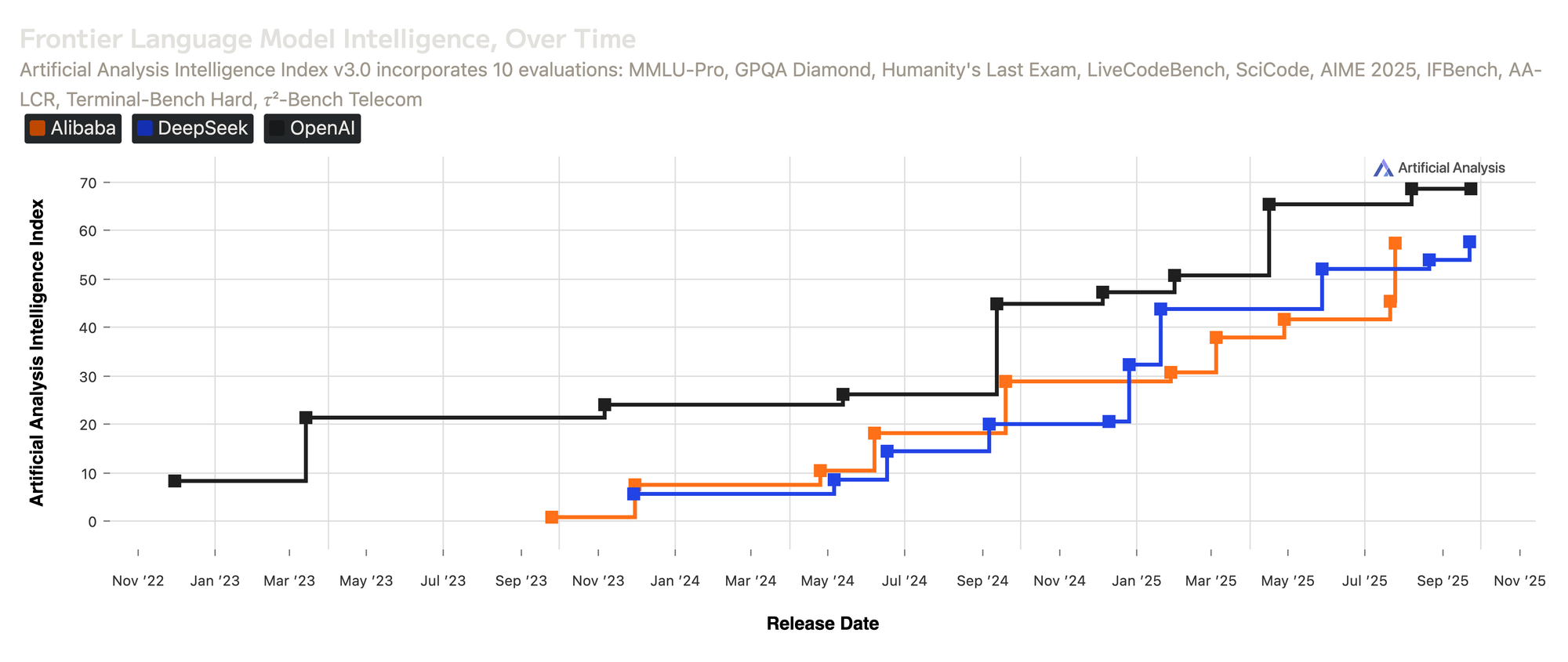As an avid reader of Foreign Affairs Magazine, I've noticed that more and more articles published in it deal with the topic of Artificial Intelligence and more importantly, reveal the role AI plays in our current geopolitical climate. Understanding the geopolitical interests behind AI advancements seems to be increasingly important to navigate the jungle of information on the topic of AI, which is often filled with misinformation and different actors trying to capitalize on the hype.
Anyone who witnessed the outcries after the releases of DeepSeek V3 and R1 will be very much aware that there is a technological race happening between the United States and China in the field of AI, which of course is only one battleground in an ongoing war for economic soft power between two rivaling nations.
We're currently witnessing a profound change in the geopolitical landscape. After the fall of the Soviet Union, the global system was basically a unipolar one, with the US as a mostly unchallenged global power. Over the last decades, however, China has grown to become a serious contender, challenging the US's position in the global order and perhaps even creating a new, multipolar world order. One of the most important resources one needs to influence the global order is economic leverage.
Globalization has caused great economic interdependencies between countries all over the world, which in turn means that control over those supply chains is directly tied to geopolitical influence. One example of this control would be TSMC, the Taiwan-based chip manufacturer powering the current AI boom with their high-performance chips used in Nvidia's GPUs. Access to those chips is to a large degree controlled by the US, which is blocking China from freely accessing TSMC's chips. However, that doesn't stop China from becoming a serious contender in the AI race, and with that a threat to the US's economic soft power.
It seems like both China and the US have recognized that being a technological leader in the field of Artificial Intelligence will be paramount to being a global economic power. At the moment, it's probably fair to say that the technological advantage lies with the US, through companies like OpenAI, Anthropic, Google and Meta. However, it seems like China might be catching up, causing industry leaders and politicians in the US to become increasingly nervous. Many Chinese companies have joined the AI race and produced notable models that challenge those of OpenAI and Anthropic: DeepSeek (financed by Chinese hedge fund High-Flyer), Alibaba (with the Qwen and Wan model families), Tencent (with the Hunyuan model family) and z.ai (with the GLM model family), among others.
While most of these models aren't on the same level as the US ones in terms of capabilities, they're close, and getting closer with each new release. They're also often a lot cheaper to run and released as open-weight models under permissive open-source licenses, meaning they can be run by anyone. DeepSeek is also notable for publishing very detailed papers about their models and surrounding infrastructure compared to US companies like OpenAI and Anthropic, who aren't very transparent at all about what's behind their models.

In a recent article called "The Cost of the AGI Delusion", Michael C. Horowitz and Lauren A. Kahn argue that the US's focus on creating AGI (a goal we're not even sure is even reachable) is causing it to fall behind in the AI race. While American companies focus on more and more expensive innovation, their Chinese counterparts focus on efficiency and cost-effectiveness, which are major factors in driving adoption. In "The Innovation Fallacy", Jeffrey Ding argues that the long-term winners aren't the leaders in innovation, but in widespread adoption of new technologies. The argument could be made that China is going to become a leader in AI adoption and thereby win the race for economic soft power through AI.
Now, why do I write about this? I'm trying to navigate the jungle of AI information and figure out the actual truths between all the hype and bad-faith actors in the field. After the release of DeepSeek R1, many attempts have been made to denounce the claims of innovations in efficiency made by this model and I've come to the conclusion that most of them were plain wrong (DeepSeek publications that show the degree of optimization they use for their models: 1,2,3,4,5). I've also seen some notable figures in the AI space, who usually know what they are talking about, starting to spread misleading narratives about Chinese AI models, for example Groq CEO Jonathan Ross suggesting that US models are optimized for cheaper inference while Chinese models are optimized for cheaper training (Link to the post). This implies that US models are ultimately more practical or cost-effective for end-users. In reality, as the market clearly shows, Chinese AI APIs are often significantly cheaper than their US counterparts.
Information on AI has been dominated by the companies that profit from AI for a while now and I've gotten used to their often misleading and overhyping narratives being spread, but it seems like the nervousness about China is starting to intensify this behavior even more, making it even harder to find truthful information on AI out there. It is important to be aware of these political interests when trying to stay informed about AI.
The geopolitical angle of AI
A new kind of space race has begun.